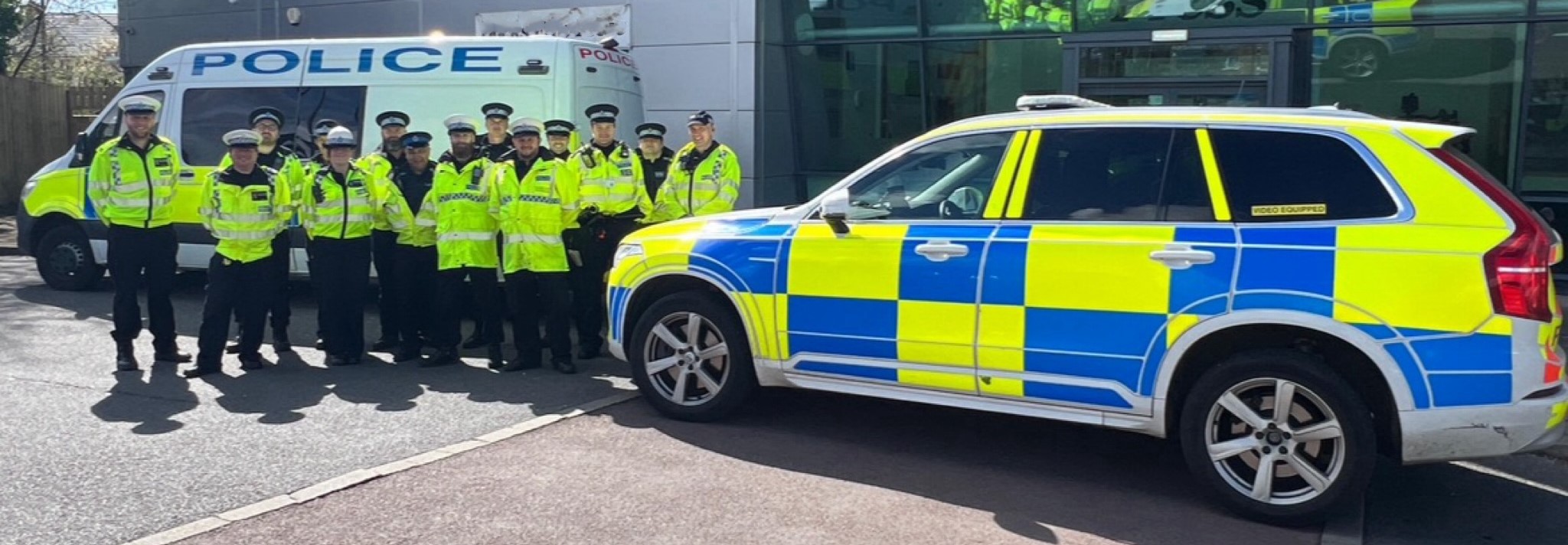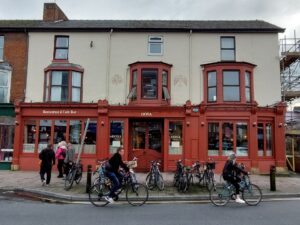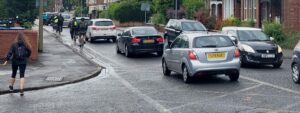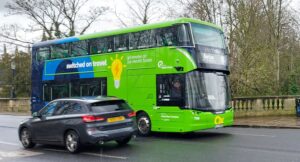2nd May 2024 sees elections for the Police and Crime Commissioner for Thames Valley Police. This role oversees police priorities, budgets and communications to the public. Because policing is so important to our streets and travel, we have asked each of the five candidates four questions, and report their answers below, to help your voting decision. We show their responses in full to inform your vote.
The five candidates nominated are:
- Matthew Barber (Conservative)
- Tim Bearder (Liberal Democrat)
- Russel Fowler (Independent) – Questions sent.
- Ben Holden-Crowther (More Police Officers for Thames Valley)
- Tim Starkey (Labour)
Further information on the candidates and election is available the PCC election website and ‘Whocanivotefor‘

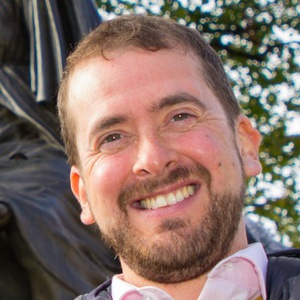
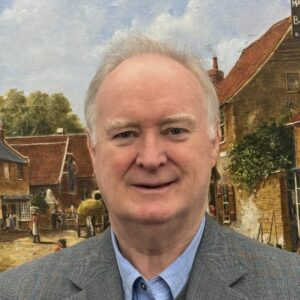


Speeding, reckless driving, and dangerous driving are the crimes most experienced in the Thames Valley Police area, and those most felt to be an issue by people in responses to the Thames Valley Police Local
Crime Survey (November 2022 – August 2023). Speed was also identified as a factor in 35% of fatal collisions in post-investigation recording. The current TVP Police and Crime Plan (2021-2025) has minimal reference to road safety, we hope the next Police and Crime Commissioner will put it as a higher priority.
1. Within policing overall, what are your priorities, if you are elected PCC? What are the resource implications?
Matthew Barber:
I have set out my overall priorities in my draft Police & Crime Plan which can be found at matthewbarber.co.uk/plan. The overall focus is on crime prevention, with a particular emphasis on neighbourhood policing. The plan is split into three broad sections (although clearly there is a overlap): Protecting Communities; Protecting People; Protecting Property. Road safety features explicitly in the plan with the stated intention of reducing the number of people killed and serious injured on our roads. I believe these objectives can be met within the existing resourced planned within the medium term for the Force which sees the budget set at £584m for this year.
Tim Bearder:
I have a dedicated track record of implementing many of the schemes that CoHSAT rightly champions. As Cabinet Member for Highways in Oxfordshire I brought in 20mph Speed limits which proved so popular it was requested by over 80% of the towns and parish councils in the county and is being delivered for less than half the initial budget. I brought in Civil Parking enforcement because I recognised that the police have been stretched so thinly, they can’t be expected to ticket traffic infringements, but equally we can’t have a culture of impunity on our roads where dangerous parking makes it impossible for vulnerable road users to move about safety. I implemented Vision Zero. We were the first and remain the only council in the Thames Valley to do so. In fact we are a national leader in that. I also stewarded in our first LTNs and Quickways in Oxford City. In short I am completely committed to a radical culture change in how we approach road safety. I would immediately remove the Police’s holding objection to new 20mph zones whereby they insist it needs to be self-enforcing. I would bolster our resource to ticket infringements. At Matthew Barber’s Road Safety summit in May 2022 almost nothing was achieved but hot air. I am not aware of any discernible actions taken on following that summit. In fact it was very poorly attended, even Milton Keynes Council didn’t attend when it was held in their City! The Conservative-led Buckinghamshire County Council stymied any hope he might have had of getting a consensus on a Thames Valley wide Vision Zero project as they said they didn’t believe in 20mph schemes and he ignored my request to trial average speed cameras on a number of important roads in Oxfordshire – particularly at the new Barton Park Crossing that is proving so dangerous. In short the Conservatives don’t believe in measures necessary to tackle the causes of our fatally dangerous roads. They believe that every measure to improve the lot of vulnerable road users to be a war on the motorist. I drive, I cycle, I walk. I believe that there is a sense of lawlessness on our roads and I would do everything in my power to change that by putting safer roads at the top of my agenda. It wasn’t even in our current PCC’s top five!
Russell Fowler:
Unfortunately policing in the UK is at a near all time low with public confidence at shockingly low rates and success rates in mopping up crime (from rape, fraud to shoplifting and much more). I have had six years of close and detailed experience of Thames Valley Police and have been shocked at many aspects of the organisation – poor leadership, poor legal and operational knowledge, poor management and serious corruption.
This can’t be changed overnight, but we must start now by challenging the Chief Constable (CC) and making major organisational changes (which I have done in some of the world’s top companies over decades). The CC will need a lot of support to identify problems and blockages and support and guidance to make those changes.
- The force needs to be more efficiently managed from the top and this will go a long way to solving the resource problems you allude to.
- Corruption and misconduct must be purged urgently – and the effective and honest officers will become doubly motivated to the benefit of the taxpayer. Let’s get rid of the bad ones and boost the good ones – as Sir Mark Rowley is tackling with the Met.
- Take politics out of policing. Never should political considerations impinge on operational policing.
- Develop officers with better knowledge of the laws they are implementing to keep us all safe from crime. Officers stating “perverting the course of justice is not a serious crime” are simply wrong and not good enough, and symptomatic of a culture observed in TV Police.
- Drive out corruption at every level – corruption can take many forms, from minor conduct issues to major misdemeanours and serious corruption.
- Stop the flow of good officers leaving and Improve recruitment to bring in the right people – we must improve the public’s trust in TV Police to enable this.
See below for resourcing – better management, better organisational structure and processes, better knowledge and skills – and better motivation.
Ben Holden-Crowther:
I’m not sure whether a focus on priorities is always particularly helpful, because it’s quite easy for politicians to just make up a very nebulous list of things (which might include things like strong neighbourhood policing) and then do very little to achieve that in practice. Or perhaps taking the current commissioner’s goal of “improving the criminal justice system” as an example, of course this is something everyone wants, but isn’t really something that a Police and Crime Commissioner can have very much effect on, except perhaps in how they decide to provide victim support services.
My number one priority is tackling violence against women and girls, and cracking down on sexual offences. I’m very frustrated that none of the main parties has managed to select a female candidate. Women in the Thames Valley have definitely been let down by the main parties at this election. Labour had a brilliant candidate in Laetisia Carter in 2016 and 2021, but now that the polls are looking better, it looks like Tim Starkey is back!
Road safety is certainly one of my top priorities, as I have three young children. Lives are destroyed in seconds due to poor decisions on the road, and we are just not taking road safety seriously enough.
In terms of resource implications, what I would definitely say is that instead of spending almost £2 million annually on around 40 members of staff for the PCC, we need to be investing that in front-line policing. That wasted £2 million would make a very significant difference for people in our local area if we invested it in road safety initiatives, for example. Unfortunately, the Office of the PCC is very inefficient at the moment – to give one example, they somehow managed to spend £18,000 on the PCCs website rebranding!
Tim Starkey:
My mission will be to rebuild trust in police. I would do this through a) Strengthening neighbourhood policing. Whilst there have been recent increases, just a year ago community policing had been decimated to a point that there were only about 150 police officers across 108 Neighbourhood “teams” in Thames Valley b) an overhaul of the vetting and misconduct procedures so that victims of domestic abuse or sexual offences can have trust in the officers dealing with their cases.
I would focus on:
- Reducing violence against women and girls. In my work as a criminal barrister, I see first hand the impact on victims of lengthy delays and poor communication from the police.
- Education, mentoring and targeted interventions to steer young people away from gangs, county lines and knife crime.
- Making our roads safe for all users. Thames Valley was one of only 2 police areas in the country to see an increase in road traffic incidents last year.
- Stopping the surge in shoplifting (up 37% in the last year) by working with businesses to identify prolific offenders and ban them from crime hotspots.
- Working with our thriving local tech industry to help keep us safe online.
2. Within roads policing, what are your priorities, if you are elected PCC? Are there any specific initiatives that you plan? What are the resource implications?
Matthew Barber:
As stated above my focus is on reducing the numbers of people killed and seriously injured. This requires a focus the evidence of where the biggest risks to life are. There has been significant progress in recent years to reduce road deaths nationally. This has slowed recently, although the three year average for KSIs since COVID is below the three year average previously.
Using the Road Safety Fund I intend to invest in:
- Average speed cameras (we have none in Thames Valley other than on motorways). Static cameras have a limited impact and are not as well received by the public. Average speed cameras are more expensive and complex, but I would argue more effective. Initially I would like to see a limited number of “sets” of average speed cameras that are suitable for multiple locations and could be moved on an occasional basis.
- Roads safety enforcement team – Enforcement of each of the fatal four has increased in the last year, but currently roads policing teams may find enforcement operations disrupted whilst attending live incidents. In discussion with the Chief Constable the hope would be to create a small proactive enforcement team who would not (in the normal run of business) be called upon for other roads policing duties.
- Improving enforcement from third-party reports – This has already begun. Vacancies are being filled and additional posts being recruited within the Criminal Justice team in order to create more capacity to deal with the number of dash cam and helmet cam reports being submitted.
- Continued support for Community Speedwatch – The management of the team has moved into the new Citizens’ in Policing portfolio and providing resources allow I would like to provide more support along the model used in Dorset where police enforcement is conducted alongside Community Speedwatch.
Tim Bearder:
I have mentioned the key areas above, but to expand slightly, we need to bring in Average Speed Cameras and we need a Police and Crime Commissioner that is prepared to stand up for local residents to the Government of the day and not pander to the will of his mates in Whitehall. Under the current set up, speeding fines go straight to the Treasury. No wonder people feel aggrieved and see enforcement as a stealth tax. There is also a clear disincentive for local councils and police to enhance or invest in schemes as they are not self-funding. I would lobby Government to ensure that fines are kept in the locality and used to enhance road safety. No scheme should make a profit or pay for other areas of local government or policing but should be used to invest in making our roads safer. Much has been made of the other candidates experience in policing and justice but people should not lose sight of the fact that this is a political role and needs a politician that can get things done, make things happen, has who has a clear vision and a record of achievement. In Highways in Oxfordshire and now in Adults managing a £240m budget in close conjunction with the NHS, Police and other partners I have all the skills required to make these important initiatives happen.
Russell Fowler:
Please see below in Q3 and Q4 for roads and resourcing. We must bring in best practices. We must get more efficient.
Ben Holden-Crowther:
Average speed check cameras, and speed cameras more broadly, have proven to be a very cost-effective way to deter speeding, and I say unashamedly that we need more of them!
Again, in terms of resources, we must cut down the waste by the OPCC and police more broadly, and this will give us a lot more money for the most important areas. As I mentioned earlier, my number one priority is violence against women and girls, but road safety is also critical.
I will be proposing to spend much more on both of these key areas than any of the other candidates, who have already committed funds to lots of different areas.
Tim Starkey:
I fully support the “Vision Zero” aim to end deaths and serious injuries on Oxfordshire’s roads by 2050. Whilst technological change has, long term, made the roads safer for those driving cars, there has not been a corresponding fall in fatalities and serious injuries for cyclists and pedestrians. So it is urgent to ensure the protection of all road users.
Speeding remains the biggest factor in road deaths, (see my response to the next question). However, drink and drug driving causes nearly 15% of road deaths. As PCC I will call for the police to be given the power to conduct random breathalyser checks near night clubs, pubs etc, as happens in most EU countries.
I will extend the use of 3rd party reporting of dangerous driving, mobile phone use etc. Used widely, this has a significant deterrent effect.
Dangerous parking – for example near junctions or forcing those with mobility scooters into the road or putting children walking to school at risk – is an issue people across Thames Valley have raised with me. Introducing the Park Safe scheme (piloted in Sheffield) would make it far easier for residents to report and upload evidence of dangerous parking to police.
3. Speeding is highlighted as the greatest danger in the survey, and post-investigation recording. How will you tackle speeding, on both urban and rural roads? What are your views on 20mph speed limits?
Matthew Barber:
As above increased officer and camera enforcement – although key to the strategy has to be working with Highways Authorities. There are many stretches of road where physical improvements will me much more effective saving lives and indeed managing speeds. We should seek to change driver behaviour to set safe standards rather than rely on arbitrary enforcement. Individual speed limits are a matter for local authorities, but should be evidence based and in line with the DfT guidance.
Tim Bearder:
I brought in 20mph limits. I have Sir Rod King’s number in my phone book. I am totally convinced that tackling the scourge of speeding perpetrated by a minority of motorists that plague our roads will have a transformative effect on travel in the Tames Valley. It will immediately bring down Killed or Seriously Injured accident statistics which will mean that the countless individuals that leave home for work or school in the morning won’t have to fear that they may never return. It will save the public purse on average £2m per incident but it will also create an environment where more people can take to the roads on bikes and foot. At the moment our highways are very often the preserve of only the bravest lycra clad individual – that should not be the case. Roads should be safe for all ages to cycle or walk on whether you’re 8 or 80. We need a culture change in the Thames Valley and that is what you’d get with me at the helm. I don’t just say this stuff, I mean it.
Russell Fowler:
My home region is Wales and they’ve been running a 20mph scheme for some while. There is much we can learn from them and take the very best bits to bring into the TVP region. We’re a small and densely packed island and must have better control of our roads – and that means more police presence and better use of IT.
Ben Holden-Crowther:
We should be totally clear that the sort of person that doesn’t respect a 30mph speed limit is the same person who won’t respect a 20mph speed limit. For this reason, and from a policing perspective, enforcement is obviously the most important part of the equation when it comes to speeding.
On the road, people are overwhelmingly killed and injured by irresponsible, dangerous drivers who feel they are better than the speed limits, and for these sorts of people, if they are confident they won’t be caught, there is little reason not to speed.
Average speed cameras and dynamic (surprise) mobile patrols to catch these sorts of drivers are very important. I also think that in rural areas like mine, 60mph is an inappropriate speed limit for narrow rural lanes where people enjoy walking and cycling, and that these should urgently be reviewed.
I would be very clear however, that I don’t share Tim Bearder’s quasi-religious quest to put 20mph limits everywhere and naively pretend they are the solution to everything. Wherever communities are in support of LTNs and 20mph limits, of course we should bring these in, as they usually make areas nicer places to live. In any case, this is a local council and not PCC issue, unlike Tim Bearder seems to suggest.
On the policing side, we should be much more focused on enforcement and remember that the danger comes from a relatively small minority of irresponsible drivers who pose a sometimes lethal threat to other road users, in particular to cyclists and pedestrians.
Tim Starkey:
I welcome the introduction of 20mph speed limits, when done with support from local residents. However, the enforcement of 20mph limits has been almost non-existent. Having consulted with councillors across Thames Valley I am in favour of local councils being given the power to enforce 20 mph speed limits themselves.
Average speed cameras are an important tool that should be used across Thames Valley. Whilst I welcome the fact that in the last couple of months TVP has finally begun installing average speed cameras, in other forces they have been a widespread and common part of enforcement for years.
Finally, an important part of the mix is in making the work of volunteer Speedwatch groups more effective, in collaboration with neighbourhood policing (see my answer to the next question).
4. Law enforcement can be improved by working in partnerships and with communities. How will you work with other organisations and citizens to reduce crime if you are elected?
Matthew Barber:
As alluded to above I have talked for some time about the involvement of Highways Authorities and others in the wider conversation about road safety – and indeed crime reduction more broadly. The publication of my Road Safety Strategy has been delayed at the request of councillors on the Police & Crime Panel but I am continuing to work with the police and partners behind the scenes and if re-elected would wish to publish that strategy document soon after the election.
Tim Bearder:
Co-production is the key here. I know from years of speaking to residents and surveying people that quieter, less polluted roads with cars travelling at safer speeds is absolutely what people want on the highways where they live. We need to communicate the positives and embed the experienced and skilled community in everything we do. Some of the best work we’ve done in Oxfordshire Highways has been where we have meaningfully engaged with groups like CoHSAT – some of the worst is where their voices have been excluded and we’ve ended up with roads designed for maximum throughput of traffic and tokenistic gestures towards safety. That’s not good enough. We need the Police, Councils, Communities and not for profit organisations – all parties with an interest in road safety – coming together and delivering what the people want. Safer roads. But that can only happen if all parties believe in Vision Zero, that it is possible to eliminate deaths and serious accidents on our roads. We all need to be intolerant of the tragic loss of life and the tragic loss of economic potential we are seeing on a daily basis as accidents blight our gridlocked infrastructure. In that obvious calamity, the police clearly shouldn’t be taking a back seat role they should be leading, pushing and innovating. That is what the Thames Valley Police force would do with me at the helm.
Russell Fowler:
I am a member of local business WhatsApp groups, comprising many shop owners and managers. They are massively disillusioned by the lack of police presence and police reaction to offences. We must get more police out of the office and into the community. This will deter crime, thereby freeing up more time for effective policing – and so on. We must engage communities to develop trust in the police. We must have many more public champions and representatives giving feedback to the top – with no filters and not through committees.
Ben Holden-Crowther:
The main political parties make a lot of noise, but often struggle to get things done for local people.
The great thing about my campaign, More Police Officers for Thames Valley, is that it’s a local initiative which can set priorities which make sense for our local area, and I don’t have to follow a national party line like the other candidates.
I am a flexible, dynamic, and open-minded sort of person, very positive about working with all organizations interested in making the Thames Valley safer.
I lack any of the political silliness that inevitably comes with being a member of the three major political parties. I just want to get things done for our local area!
I’d really appreciate your vote on May 2nd. Feel free to contact me at morepolice.uk if you have any questions, suggestions or concerns.
Tim Starkey:
The Police and Crime Commissioner is uniquely placed to forge partnerships between police and organisations in wider society. One such vital partnership is with schools: whether it comes to messages about knife crime or about the meaning of consent in healthy sexual relationships.
Another example, is in relation to tackling the growth of online fraud – something traditional policing has proved ill equipped to deal with. I want to build partnerships with local tech firms to provide volunteering opportunities for their employees to give advice to small businesses, or through charities such as Age UK.
A final example relates to volunteer Speedwatch groups. They can be made more effective by:
- Sometimes working alongside neighbourhood officers using speed guns so that passing motorists can’t assume they are only at risk of a warning letter if speeding.
- Getting letters out to speeding motorists faster, it currently often takes 6 weeks.
- Follow the West Berkshire example of local authority involvement to facilitate a data led approach of where Speedwatch groups should target their activity.

